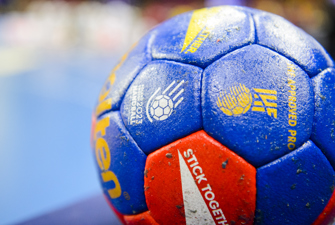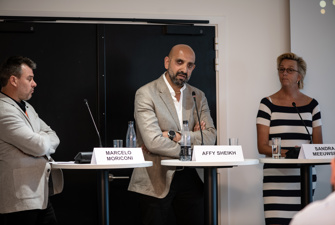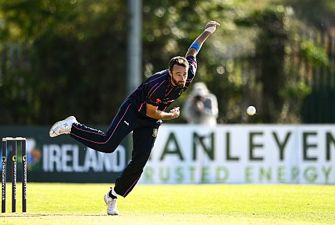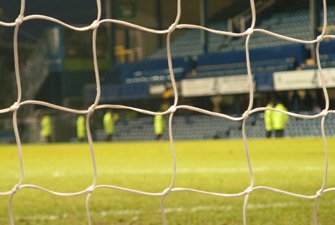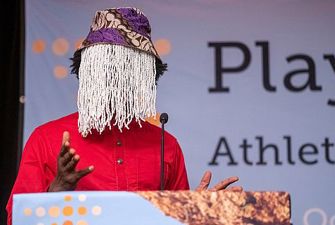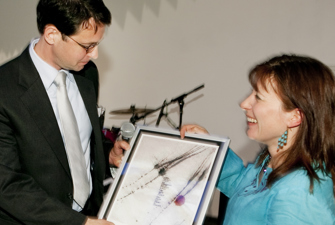Friendly matches between clubs are wide open for match- fixing
ANALYSIS: Football matches are coming back after the corona lockdown and so is match-fixing. Steve Menary outlines the problems in stemming the rise of match-fixing in friendly games between clubs: Data scouts with low integrity, lack of monitoring, and federations that do not take responsibility.
As football prepares to resume in Europe after the worst of the Covid-19 virus appears to have passed, clubs are beginning their preparations with friendly matches against each other.
After the sport’s enforced absence, these supposedly non-competitive games will be far more important than normal for fans and bookmakers, but also for match-fixers. With little or no football being played during the worst of the virus, match-fixers were left frustrated at the lack of action and the swathe of forthcoming friendlies offer a unique window of opportunity.
Friendly matches are routinely offered on the gambling markets by both more responsible regulated operators and the unlicensed sector, mainly based in Asia, where huge sums are bet on football.
During the worst of the virus, some of the more desperate operators offered bets on soap football. Others offered the Taiwanese university football league or even in some cases bets on deaths from Covid-19. Now, with a rash of friendlies about to be played, well-regulated operators and the unlicensed sector will both have seemingly more credible bets to offer.
However, every year, dozens of European friendly matches come under suspicion for suspicious betting and this trend is rising. In the 2019 edition of the Suspicious Betting Trends in Global Football Report, 2.0 percent of all friendlies analysed in the previous 2018 season were deemed suspicious due to irregular betting movements. The proportion of friendlies deemed suspicious was far higher than the total for all games.
With most leagues cancelled, there has been a surge of matches attracting suspicion in Europe in countries including Armenia and Belarus to Georgia to Russia and Sweden.
Figure 1: Share of suspicious football matches in percent
| Match type | 2017 (%) | 2018 (%) |
| Friendlies | 1,20 | 2,00 |
| All Games | 0,73 | 0,61 |
Source: STATS Perform/Star Lizard
Even more concerning is that players are also reporting fixed matches that do not appear in betting alerts as large amounts of small bets are either placed in High Street bookmakers or on the amorphous Asian markets, where they rarely register.
Despite these facts sporting sanctions are rare if non-existent and in many countries, friendly matches are a largely unsanctioned free-for-all often played in an integrity vacuum.
Data scouts are key to matchfixing
So how does this system work and what can be done about the Wild West world of club football friendlies?
In-play betting on all matches is made possible when data scouts attend matches and relay information about incidents – corners, red cards, goals – to data companies. The data companies then sell this information on in real-time to gambling companies, who offer up these friendly matches for bets.
With league matches, fixtures are easy to locate but friendlies are not publicised in the same way, particularly in eastern Europe. So, local data scouts offer to cover these games both for data companies and Asian bookmakers, who sometimes also send their own scouts to matches.
The data companies and Asian bookmakers are reliant on the integrity of these scouts, who can work with clubs planning a fix. Scouts will offer to cover games to get them onto the gambling markets. Once a game is available for betting with one operator, other bookmakers, particularly in Asia, will then also offer the match to try and avoid losing clients.
In this unregulated environment it can be difficult to trust data scouts as the data company Perform Group (now STATS Perform) learned the hard way in 2014.
That year data scouts were essential in helping to perpetrate a scam during the midwinter break when a fake match was created when players posing as Portuguese and Spanish lower league sides Freamunde and Ponferradina played a match to fool bookmakers. After that STATS Perform set up its own system where data scouts are vetted and have contracts that prevent them from working for rival companies.
Scouts are often people doing the job on a part-time basis and can be poorly remunerated. The temptation to trick data companies can be hard to resist, and the consequences can be fatal as Chinese students Zhen Xing Yang and his girlfriend Xi Zhou discovered in 2008.
The pair, who were brutally murdered in Newcastle-upon-Tyne in England in 2008, were both data scouts and had been delaying transmission of information from English games to Chinese bookmakers by a few seconds so gamblers with knowledge of their activities could bet on events knowing the outcome.
The role of data scouts also came under the spotlight in March 2020 in the Ukraine, where criminal elements arranged and staged fictional mathces - so-called ghost games - using players pretending to be part of real clubs to fool bookmakers in Asia.
Spotting the fix
Before and during games, gambling operators and data companies monitor the odds for games. If the price suddenly shortens, or betting volumes increase for no obvious reason, it suggests a match could have been manipulated and will generate an alert.
On a friendly, this can be more problematic. These matches are not official, so team line-ups are not always available. The strength or weakness of a team is not always clear until after a match kicks off. If the price is then adjusted after kick-off, this can create a sudden shift in the odds and prompt a false alert.
Gambling companies should research suspicious matches. If the gambling companies are regulated and part of a larger body, such as the International Betting Integrity Association (IBIA) or the Global Lotteries Monitoring System, these bodies will receive information from members about these alerts and information will be passed on to the football authorities.
If the gambling companies are not part of a body like IBIA or simply do not want to co-operate with sports authorities then alerts may not be passed on. Many of the biggest bookmakers operate in Asia and are unregulated as gambling is illegal in a lot of the countries where they are taking bets, usually on football. So, there is no incentive to pass on information about suspicious matches.
Friendlies are mostly ignored by federations
After the problems with ghost matches in the Ukraine, UEFA issued a warning about potential problems with friendlies. As part of this warning, UEFA asked national federations if clubs informed them of friendlies.
In Austria, which stages nearly 300 club friendlies every summer, the Austrian football federation regulates friendlies and records all matches. In neighbouring Germany, the Bundesliga and the German Football Association (DfB) also record matches and use separate companies to monitor friendlies played by all clubs in the top two divisions. However, in many other European countries, particularly in Eastern Europe, friendlies are virtually ignored.
National federations often only find out about their clubs playing friendlies abroad from social media, or even the websites of online gambling firms as there is little or no organised monitoring of these games for betting alerts in many European countries.
Finding a team line-up for a friendly can also be difficult and compunds the problem as it is difficult to take action against players if you don’t know who they are. Sometimes the location is not even evident, yet thousands of these games are routinely offered by gambling companies, particularly in Asia, where demand for football betting is strongest.
No regulation even though the problem is well known
There is no effective regulation of friendly matches, even though football authorities have known about the problems with matchfixing for some time.
For instance, in 2015 the International Centre for Sports Security warned that a series of friendlies played at Marbella in southern Spain had been corrupted. In one game between Belgian club Standard Liege and Heerenveen from the Netherlands, the match had to be abandoned after a series of dubious decisions by the referee. This farrago culminated in the Dutch side’s goalkeeper saving a penalty, which the referee insisted – for no obvious reason – had to be retaken. The goalkeeper responded by walking off the field.
The other team identified in the series of flagged games from 2015 was Albanian club Skenderbeu, that in 2018 were banned for a decade by UEFA, who said that the club had been ‘fixing matches like nobody has done before’.
Last year, Marbella was again the centre of attention for a series of suspicious matches involving Latvian side Ventspils, whose games generated alerts for suspicious betting. In one game with Norwegian FK Jerv, eight of the Latvian players suddenly all attacked leaving their stranded goalkeeper and two defenders to try and repel a series of attacks until the Norwegian side finally won 1-0.
The game was live streamed on the Internet, giving unwitting punters in Asia and the rest of the world the opportunity to bet on a mid-winter training ground friendly between a Latvian club and a Norwegian third division team.The promoters of the game denied all knowledge of match fixing. The Spanish federation, the RFEF, investigated the claims and filed reports to the local police and UEFA, but no action has so far been taken.
Taking responsibility
After the spate of recent problems in Brazil and the Ukraine, IBIA called on data companies to agree standards for best practice. Leading suppliers Genius and Sportradar were generally supportive and STATS Perform even suggested introducing independent audits.
Tightening data supply standards will help, but sporting federations also need to take responsibility for friendlies. The reason for the lack of action is often identifying who should take responsibility. If two clubs from different countries go to a third country, who is responsible: the countries that the clubs come from or the hosts?
If all three clubs are from the same confederation, then FIFA say the responsibility lies with UEFA but the problem for the European body lies in the transnational nature of the issue, which UEFA president Aleksander Ceferin acknowledged last October.
“Our problem always was and always is that, even if we know many things, each case has to be prosecuted,” said Ceferin.
“The main problem is that our jurisdiction ends at football. We cannot tap phones, we cannot put people in prison, and with many computer servers being 10,000km from Europe, it’s a problem we cannot solve on our own.”
UEFA subsequently began the search for an organisation to carry out a feasibility study into the creation of a new body to tackle integrity. Earlier this year, a candidate was identified but has not been named by UEFA due to what it describes as ‘commercial confidentiality’.
The idea of a sort of World Anti-Doping Association to tackle sporting integrity issues was discussed at Play the Game’s 2019 conference in Colorado Springs. The problem is that UEFA’s 55 member associations would need to vote this through and there are enough that would not want to help create a new integrity body that might start snooping in their affairs.
The creation of a more focused body created solely to focus on match fixing just in Europe has more chance of success, and identifying responsibility for the regulation of friendlies should be one of the first problems to be tackled before the issue comes back to haunt them.
Steve Menary is coordinator of the Erasmus+ programme Combating Match Fixing in Club Football Non-Competitive Matches.


